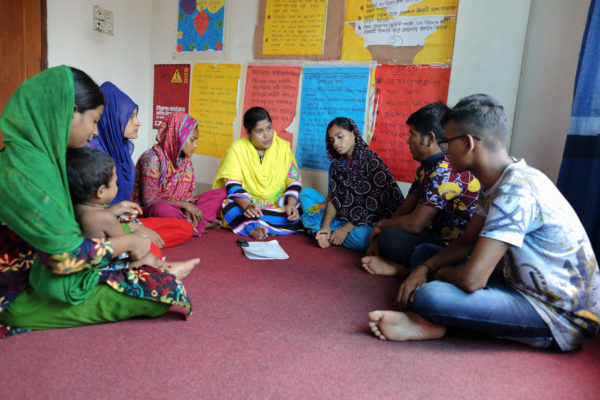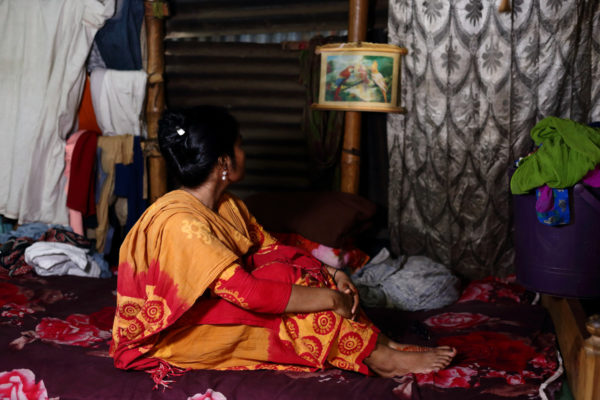“I want to tell [people] that the dress you are wearing to look beautiful, is made of our sweat and tears.”
Salma, a garment worker in Bangladesh with 15 years experience, wonders whether the consumers who purchase the clothes she makes know their clothes are often made by women facing abuse and exploitation in an unsafe work environment.
We recently heard from three women with decades of experience working in Bangladesh’s garment industry about how they are reclaiming their worker’s rights while encouraging other women to do the same.
Former garment worker, Nasima Ahkter now manages the Kalyanpur Café, Safety and Rights Society (KCSRS”) in Dhaka, an initiative that supports garment workers, primarily women, to understand labour laws and their rights and to confidently assert their rights at work.

Through her work, Nasima has spoken to hundreds of women and estimates about one-quarter have told her about experiencing violence and harassment in the workplace. “I would assume there are more such incidents, but women are not talking about it,” she says.
ActionAid supports 25 workers cafés, including 17 in Dhaka and eight in Chittagong. The cafés are run by local women, with support from ActionAid Bangladesh, and provide advice, resources, training and support on a range of issues including minimum wage payment, unfair dismissal, sexual violence and physical harassment.
Salma is one of many women benefiting from the cafes. After attending a training session she gained knowledge about her right to work in a safe environment and says she now has the confidence to stand up against violence and harassment at work and to report incidents to management.
“The cafés grant women a safe space to share their stories and often, in these safe spaces, women discover that they are not alone in their experiences,” explains Nasima.
“They are now more aware, sensitive and vocal about different issues. They recognise injustices and stand up for themselves and others. The workers are now pushing the factory management to be compliant with the laws and regulations,” she says.
Nurjan, 26, has worked in the garment industry in Bangladesh’s capital Dhaka for nearly a decade. She works as a senior machine operator for an average of 60 hours a week.
She says attending workers cafés, supported by ActionAid Bangladesh, has given her “moral strength” and taught her about labour laws and women’s rights.

“I might not have degrees or certificates, but I am a self-taught person now.”
Providing safe spaces for women to share their stories and work together towards safer workplaces is now more important than ever in the face of COVID-19. The cafes are an important local initiative that demonstrates the value of women supporting women to achieve their workplace rights.